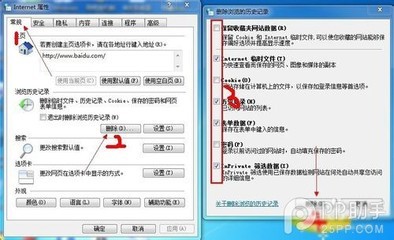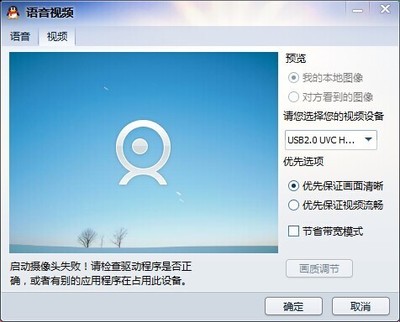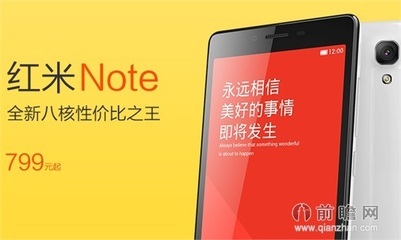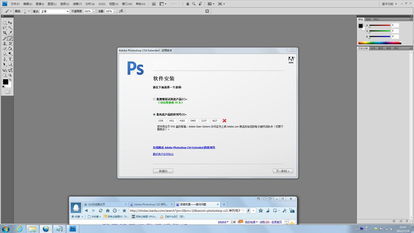考考你:
“海泡”是海里的泡泡吗?
“闪离”指快速离开吗?
“留爪”是什么的“爪”?
“太空人”是指杨利伟、翟志刚这样的人吗?
……
恭喜你
……
……
答错了!
Now, come to find them out!
流行语随着社会经济的发展不断涌现,或诙谐幽默,或言辞犀利,生动地反映了社会现状。
本文根据ShanghaiDaily所提供的材料,进行归纳整理,保留了原来简短的英文解释,供在我们忍俊不禁或捧腹大笑之际,轻松愉快的吸收英语表达,提高英语水平。
生活/工作压力类
海泡(Overseas-Lingering Grads(graduates))
Some Chinese students stay much longer than necessary in a foreigncountry after finishing their study because they lack confidence tofind a good job in their home country. The expression plays on theChinese word 泡, which can mean either bubble, froth or, as a verb,to linger.
断供mortgage default
The word emerged as housing prices in several Chinese citiesstarted to fall. Many house-owners have refused to continue to paytheir mortgages as the value of their property is shrinking.
住车族car living people
It refers to some people in California who live in their cars asthey have lost jobs and cannot afford rent for housing.
百恼汇middle-age crisis
The term has a similar pronunciation to “Buynow,” the name of acomputer market, in Chinese. Meaning “a host of worries” it is nowused to describe the lifestyle crisis facing many middle-agedpeople.
抠抠族eke-out clan
Some young office workers in large cities like Shanghai who have ameager income have to think of varied ways to save money to paytheir mortgages or to cover their wedding costs.
自然醒wake-up naturally
How urban employees wish to wake up with their bio-clock, not thealarm clock! But under the pressure of fast-paced city life, havinga sound sleep and waking up naturally has become a luxury for manyurban workers.
租奴house-rent slave
Some people in big cities like Beijing and Shanghai, especiallythose young workers from other provinces, have to take out a bigpart of their salary to pay their rent.
嚼吧chewing gum club
It is reported that in some big Chinese cities like Beijing andGuangzhou, a chewing gum producer has set up a room and offers freeproducts to office workers complaining of high pressure, eitherfrom work or life, in high-end office complexes.
消费旅游类
狂扫族crazy shopper
Some shoppers buy whatever is available at a sale only for thecheap prices ?the extreme example of impulsive buying.
旅游购物狂transumer
Chinese tourists are now well-known for their shopping spreesoverseas at souvenir stores, shopping malls and brand nameboutiques. Transumer, a newly-coined English word that blends"transient"with "consumer,"is the best name for those Chinesetourists.
迷卡mini card
It refers to portable digital input cards with handwritingfunctions, usually in the size of a name card. It proves to be awelcome alternative to keying text into phones or other electronicdevices.
返券黄牛shopping coupon scalper
Some shopping malls give coupons to customers as discounts duringpromotions. If customers don’t want to use the coupons, scalpersprofit by selling or buying them.
油老虎gas guzzler
“Oil tiger,” as this term translates literally, refers to cars thatget very poor gas mileage. Many Chinese nouveau riche favor “oiltigers” to show off their wealth.
绿游green tour
A term used these days to classify those people who prefer a touroperator and a hotel that provide environment protectioninformation, refuse to eat or buy anything made of protectedspecies and refrain from littering and using detergents.
驴子heavy-pack traveler
This Chinese phrase means literally donkey, a working animal. It isused here to describe those travel buffs who are equipped withprofessional backpack gear, such as a sleeping bag, tent and watercask. The name implies that they travel with heavy packs, just likea donkey carrying a large piece of cargo.
鸭子light traveler
The word “duck” is used here for those tourists who travel lightand tend to join a tour group organized by travel agencies. Theyare like ducks herded around by the guide.
试客free product testers
Many Websites now start to offer free products, such as shampoo andmake-up, as test samples to anyone who registers. However, testershave to write feed-back reports about the quality of the product ortheir ideas about it. This information, in turn, will be sold toproducers.
控盐勺salt-control spoon
Shanghai government has decided to give out 6 million salt-controlspoons free to local families in order to help control localresidents' daily salt intake. Scientists have found that locals areputting too much salt into their food. Surveys found an averageresident in Shanghai takes in about 9.90 grams of salt every day,far above the recommended amount of 6 grams.
肾结石宝宝kidney stone baby
It was recently brought to light that thousands of infants in Chinadeveloped kidney stone diseases after taking melamine-tainted milkformula. Melamine, which may lead to reproductive damage, orbladder or kidney stones if ingested, has been found in a few milkpowder products prepared for infants.
婚姻类
闪离speed divorce
While some people, especially those born in the 1980s, don’thesitate to wait a while before getting married, others don’t havea second thought about getting a divorce once marriage crisisarises.
姐弟恋cradle snatcher
"sister-younger brother love,"as this term means literally, refersto a woman's romance with a much younger male partner. It is notonly reflected in the couple's appearance, but also in their rolesin this relationship.
奥运婚Olympic marriage
The 2008 Beijing Olympic Games are not just a party for sports fansbut also for many brides and grooms. The number of weddingregistrations in Shanghai hit a record on August 8, the opening dayof the Games, as many young couples wanted the memorable day astheir wedding anniversary.
懒婚族single-life clan
It refers to those who have a decent and well-paying job and live acomfortable life but are reluctant to get married.
家庭教育
直升机父母helicopter parents
The term refers to parents who are always obsessively worried abouttheir children’s future and safety and prefer to do everything forthem. They are hovering over their children like helicopters,watchful and noisy.
陪读student guardian/companion
In early times, this term referred to a youngster who was assignedto be a study mate for the offspring of a rich family. Nowadays, itis used to describe anyone who accompanies a child or spouse duringhis/her study overseas.
金融商业类
3F危机3F crisis
This new term refers to the financial crisis, fuel crisis and foodcrisis now plaguing many parts of the world.
大小非减持 sale of non-tradable shares
China has been actively, and cautiously, encouraging the reform ofthe system of non-tradable shares in listed companies, as suchstocks pose potential damage to the healthy growth of the country’ssecurities markets.
格子店pigeonhole shop
A kind of store where cabinet boxes are rented out to differentpeople to sell various types of goods. It has become popular amongyoung people, especially white-collars as they don’t have to stayin the store themselves.
吸金money spinning, money making
This term translates literally “sucking gold.” It actually refersto any enterprise, project or person that rakes in a lot ofmoney
职业/生活方式类
钟摆族pendulum clan
This term refers to those young white-collar workers who travel along distance between their offices and homes in the Yangtze RiverDelta area. It usually takes at least two hours to go from oneplace to another by train, bus or car.
男人妆unisex makeup
Some women make themselves up in a way that is unisex instead ofpurely feminine.
海鸥globe-trotting businesspeople
Seagull, as this Chinese term means literally, describes someChinese people who have an overseas education background andfrequently take business trips to foreign countries. They arelikened to seagulls flying over the sea all the time.
奶油妈妈milky mom
The term refers to mothers who, after the prescribed four-monthmaternity leave, have to go back to work but keep feeding theirbabies with their own milk. So, they have to find time and properplaces to collect their milk during work hours and then bring themilk home after work. Since thousands of babies have recentlyfallen sick after taking some tainted milk powder products, the“milky mom” has become a healthy trend.
穿衣经dressing manual
Many newspapers and magazines these days run a special columndiscussing the trendy, and mostly correct, ways of gettingdressed.
海根back-to-the-root Chinese
Many Chinese become well established in a foreign country afterfinishing their study, but they are more than ready to return toChina to spend the rest of their life. As the old Chinese sayinggoes, “falling leaves will return to the roots.”
味道美女belle waitress
The Chinese term literally means "delectable beauty." And manygourmets believe that beautiful waitresses are the sine qua non ofa fine feast.
太空人frequent jet traveler
Some people like businessmen or popular showbiz artists who haveto, or like to, fly around the world frequently.
紫领purple-collar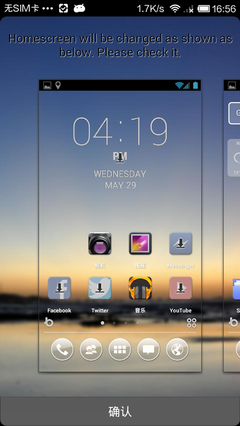
The people in this group have the brains of the white-collar andthe skills of the blue-collar. They are practical, progressive andhave unrivaled personal presence that earns them far more incomethan white-collars and golden-collars combined.
代排族hired queuer
People, usually migrants from rural areas and jobless citizens, arehired to queue up for train tickets and hospital appointmenttickets in large cities in return for a pittance.
低碳族low-CO2 clan
This refers to the group of conservationists and nature lovers whotry to minimize carbon dioxide emissions in daily life, forexample, switching off PCs when not using them, shunning goods withexcessive packaging, and rejecting the use of plastic bags.
职客job-hunting agent
A term used to refer to those who help others find a job and thencharge a certain amount as a fee. This kind of self-employed agentsees a job-wanted post on the Internet and helps find one asspecified by using their connections as well as job marketinformation.
现代病modern disease
It refers to diseases and physical disorders believed, or proven,to have been caused by modern lifestyle, like staying inair-conditioned space or using computers too long.
网络博客类
虚拟奴隶online slave
"Buy me as your slave" is now a greeting among some Chinese onlineusers. Similar to "Friends for Sale"application in http://www.facebook.com/, thisapplication offered by http://www.kaixin001.com/ givesusers a whole new experience compared with other run-of-the-millsocial networking Websites. http://www.kaixin001.com/ is a newentrant to the Chinese SNS (social networking service). At "Friendsfor Sale"each user can be sold as a "slave"twice every day throughthe virtual payment system. The "Owners"can earn money by forcingthe "Slaves"to work as singers, miners or toilet cleaners. or, theycould just be "tortured"for fun.
博客圈 (bo2 ke4 quan1)blogosphere
It refers to the communities or social networks that comprise allblogs and their interconnection.
睡眠博客 (shui4 mian2 bo2 ke4)dormant blog
The term refers to those blogs that are rarely updated by theirwriters. Statistics show that on average, over 70 percent of blogsare not updated each month.
博斗blog bickering
The term is a homonym of the Chinese word “fight,” but it conjoinstwo Chinese characters that can mean “blog” and “fight,”respectively. So, the phrase refers to Netizens tilting at eachother on their blogs.
语言暴力
verbal violence
Among all types of violence, verbal violence is the most common.Now the term is used to mean slogans, remarks and language used inonline discussions that are full of violent and abusive words orexpletives.
收声shut up
The Chinese expression, once often used in formal context, is nowfrequently used at online platforms and media publications to meanstop talking or discussing.
头像avatar
This term refers to the model or icon used in the chatrooms, MSN,QQ and other online communities or games, to represent a user orparticipant. It’s usually a three-dimensional model in computergames or a two-dimensional icon in Internet forums.
潜水lurking
This popular expression in the online world refers to the fact thatsome visitors only read remarks posted by others in the chat roombut never participate in the talk.
留爪leave a mark
The term literally means “leaving a claw mark” in Chinese. Now thephrase is becoming popular among online users when referring tomaking an online posting in BBS communities.
拍砖knock, pick apart
The term, which literally means "smacking with a brick" in Chinese,is now widely used among Chinese Internet users when they stronglycriticize someone's idea or act.
人际交往类
潜歧视tacit discrimination
It is a deep-rooted habitual discrimination harbored by one groupof people against another though it has never been publiclystated.
放卫星stand up, no-show
This Chinese term, which literally means “launching a satellite,”e volved from the phrase “flying a pigeon.” It used to describemaking big news during the “cultural revolution” (1966-1976). Butnow it is used to describe the behavior of standing somebody up,not showing up or offering an empty promise.
诈弹false bomb
This Chinese term has the same pronunciation as the Chinese termfor “bomb”, but with a twist: the first character “zha” here means“false,” not “explosive.”
 爱华网
爱华网